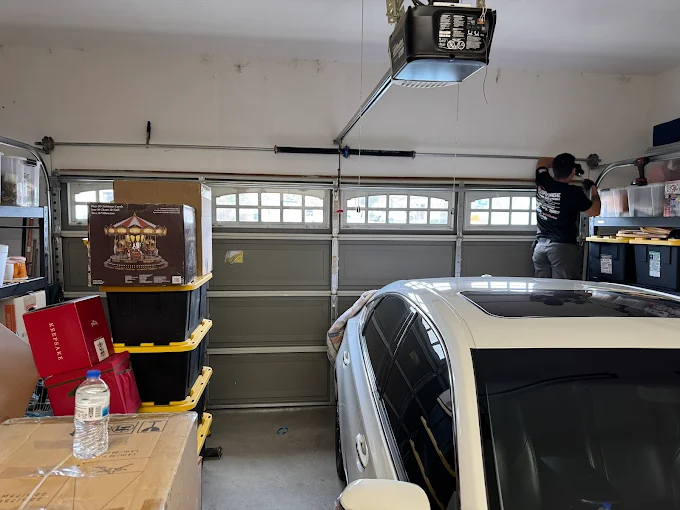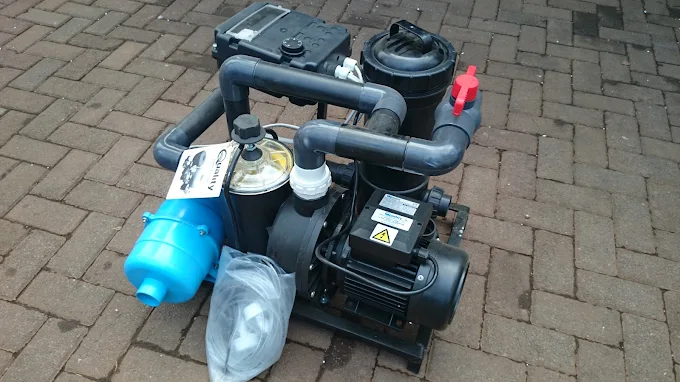
Managing goods, especially when you’re dealing with imports and exports, is never easy. You have to think about storage, security, customs, taxes, and deadlines. But what if there was a way to make it all a little less stressful and more efficient? That’s where bonded warehousing comes into play.
If you’ve ever looked into logistics or supply chain management in Canada, you might have come across the term bonded warehouse Winnipeg. This article will help you understand what bonded warehousing is all about and why it could be the right move for your business.
Let’s dive into the details, explore the benefits, and even look at a real example of how it can help businesses grow.
What is a Bonded Warehouse?
Before we get into the benefits, it’s important to understand what a bonded warehouse is. A bonded warehouse is a secure facility approved by customs authorities where you can store imported goods before paying any duties or taxes. These goods can stay in the warehouse for a specific period (usually up to 4 years in Canada), during which no customs duties or taxes are charged.
This type of warehousing is especially useful for businesses that deal with international shipping, importing goods from abroad and distributing them locally or even re-exporting them to other countries.
Why Choose a Bonded Warehouse in Winnipeg?
Winnipeg is a strategic location in Canada, situated in the center of the country. It’s often called the “Gateway to the West,” and for good reason. Winnipeg’s location provides easy access to both eastern and western markets, as well as to the United States.
Let’s look at some key reasons why businesses are choosing bonded warehouses in Winnipeg:
1. Lower Upfront Costs
One of the biggest advantages of using a bonded warehouse in Winnipeg is that you don’t have to pay import duties or taxes right away. You only pay them when the goods are actually removed from the warehouse and sent to the local market. This means you can hold onto your cash longer and manage your budget better.
2. Delayed Duties and Taxes
Delaying payments is always helpful for businesses. A bonded warehouse lets you defer paying duties and taxes until your products are sold. This is especially useful if you’re unsure how quickly your goods will sell or if you’re importing seasonal products.
3. Enhanced Security
Bonded warehouses are highly secure facilities monitored by customs and other authorities. This reduces the risk of theft, loss, or tampering with your goods. It gives you peace of mind knowing your inventory is safe and accounted for.
4. Ideal for Re-Exports
Sometimes, businesses import goods that aren’t meant for the local market. They might be destined for another country. In this case, using a bonded warehouse allows you to store goods temporarily and export them later without paying any Canadian duties or taxes at all.
5. Better Inventory Control
With a bonded warehouse, you can store goods for an extended period and move them only when necessary. This gives you more control over your stock and allows you to respond better to market demands. You don’t have to rush sales just to clear inventory and avoid penalties.
Example: How a Winnipeg Business Benefited from Bonded Warehousing
Let’s take an example to make things clearer.
A small electronics importer in Winnipeg, let’s call them Maple Tech Imports, started bringing in smart home devices from overseas. They noticed that most of their products were selling well during the holiday season but moved slowly during the rest of the year.
Paying full duties and taxes at the time of import was affecting their cash flow. They had to either raise prices or sell large quantities quickly, which wasn’t always possible.
They switched to using a bonded warehouse in Winnipeg. Here’s what happened:
- They stored their goods in the bonded warehouse without paying duties.
- They released smaller shipments to the local market during peak seasons and paid duties only on what was sold.
- For the remaining stock, they waited until the next season to release it.
The result?
Maple Tech Imports improved their cash flow, lowered their financial risk, and had more flexibility with pricing and inventory management. Plus, they had more time to plan their sales strategy without worrying about immediate taxes.
How Bonded Warehouses Work in Practice
Still wondering how the process works step by step? Here’s a simple overview:
- Import Goods – Your shipment arrives in Canada, typically at a port or airport.
- Transfer to Bonded Warehouse – Goods are moved to an approved bonded warehouse in Winnipeg.
- Storage – Goods can be stored for up to 4 years without paying duties or taxes.
- Release for Sale – When you’re ready to sell or move goods into the Canadian market, you pay duties on just that portion.
- Re-export Option – If you decide to send goods to another country, you can do so without paying Canadian duties at all.
It’s a flexible and efficient process, especially for businesses that import a lot or want to test new products before committing to full-scale sales.
Who Can Benefit the Most?
Bonded warehousing isn’t just for big companies. In fact, small and medium-sized businesses can benefit even more because it helps reduce upfront costs and financial pressure.
Here are some examples of businesses that can benefit:
- Importers of electronics, fashion, or consumer goods
- Wholesalers who supply to seasonal markets
- Exporters who ship goods to and from multiple countries
- E-commerce businesses that import products and ship across North America
- Retailers who import large volumes of goods but sell in small batches
How to Get Started with a Bonded Warehouse in Winnipeg
If you’re interested in using a bonded warehouse in Winnipeg, here are some tips to help you get started:
- Find a Licensed Warehouse Provider – Look for a bonded warehouse that is approved by the Canada Border Services Agency (CBSA). They must meet strict guidelines and offer secure facilities.
- Discuss Your Needs – Not all businesses are the same. Talk to the provider about your type of products, expected volumes, storage duration, and distribution plans.
- Get the Right Documentation – You’ll need proper import/export licenses, commercial invoices, and customs documents to use bonded warehousing services.
- Plan Your Logistics – Coordinate with your shipping partners, customs brokers, and warehouse provider to create a smooth flow for receiving and releasing your goods.
- Track and Manage Inventory – Make sure the warehouse offers inventory tracking systems so you always know what’s in storage and what’s been released.
Final Thoughts
Using a bonded warehouse in Winnipeg could be one of the smartest moves for your business if you’re involved in international trade. Whether you’re a small importer testing new markets or a larger company looking to streamline logistics, bonded warehousing offers flexibility, cost savings, and peace of mind.
With the ability to delay duties, improve cash flow, and securely store your goods, it’s no wonder that more businesses in Winnipeg are turning to bonded warehouse solutions.






